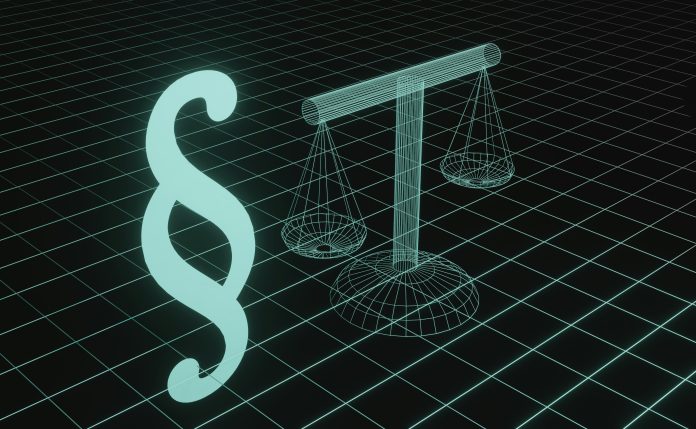Advancements in technology continue to change the way we live and work – and the legal profession is no different than any other role out there.
The law has had to evolve to keep up and new issues to tackle have arisen for solicitors. With some even specialising in related issues, such as digital laws.
For example, as more and more aspects of our lives such as paying bills, shopping, viewing our credit scores, storing private and sensitive information, medical records, etc, has been done online, laws such as those surrounding data privacy have had to be created – with one of the most notable created laws being GDPR, or General Data Protection Regulation.
GDPR is a European Union law that puts guidelines on how companies and organisations can collect and store people’s personal data. This law was published in 2016, and is important in protecting people’s privacy.
This is just one example of the many ways that the law has had to adapt to evolving technology, and changes in society and client needs.
In this article, we’ll be looking more into how legal matters, the law itself, and solicitors’ roles could potentially change in the future.
Increased Use of AI
As most companies and industries are embracing the AI (aka artificial intelligence) boom we are currently experiencing, and utilising this software in various ways, solicitors will be no different.
AI will change the legal profession, as well as the law, and open up a wide range of possibilities.
AI will be able to enhance processes such as legal research, analysing large amounts of legal documents and data to find important details quickly, and in a fraction of the time it would take for someone to manually sift through the documents.
As with many uses in various industries, AI is great at streamlining processes and achieving almost instant results. It saves time and reduces costs.
For example, it may be able to quickly analyse a person’s details to see if they would qualify for help from legal aid solicitors.
It may lead to better accuracy, even being able to catch some details that a human could potentially miss.
Having said that however, it’s important to note that AI should never be fully relied on solely and the best results would be a human utilising both their own skill and AI’s help. Human expertise will always be required, AI is just an incredible tool.
Whilst AI will change legal processes and solicitor responsibilities, it will also affect the law itself.
New laws will be created to keep AI’s power in check, as AI could be potentially used to spread false information and images. As AI generated images and videos (sometimes known as deep fakes) become more and more convincing, eventually restrictions will be put in place to prevent its misuse. Laws may also be created to protect jobs from AI, and other abuse or crime (including cybercrime) that AI may possibly be used for.
Virtual Services and Courts
As seen during the pandemic lockdowns, various virtual services such as court proceedings, funerals, and concerts took place over live video streaming and conferencing platforms like Zoom.
This has changed jobs, and will only continue to evolve as we further develop technology such as VR devices.
Many solicitors have multiple offices in a county, you may be looking for solicitors in Shoeburyness, for example, or an office elsewhere in Essex, London, and surrounding areas.
People will usually opt for what’s closest and easiest for them, though some may spend more time and money for an (at least perceived) higher level from solicitors based in popular areas like London.
Some people, however, do not have a choice. This may be due to something like a disability, mobility issues, or other such circumstance.
With virtual law services, those seeking professional legal help will not be limited and may find more suitable options for their legal issues. This will also help solicitor’s themselves to save costs, access clients easier, have more flexibility and so on.
A similar trend has already been seen in the form of apps that can connect people to an online doctor or therapist. The internet has already provided access where there previously wasn’t any, such as online shopping for groceries and other goods.
Final Thoughts
These are just a few speculations based on current trends, but the future may well be very different. For now though, existing technologies and processes such as visiting a solicitor’s website or calling them up is still a step up from how it was done decades ago. Things have always been changing.

